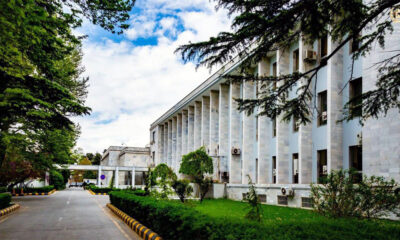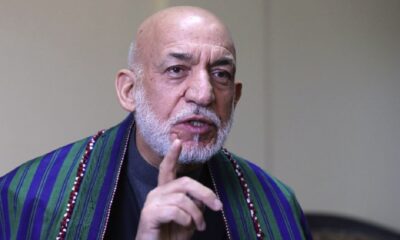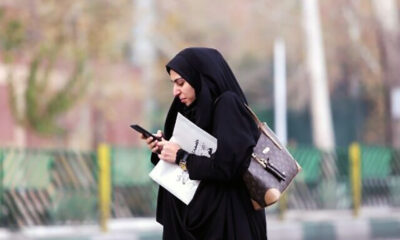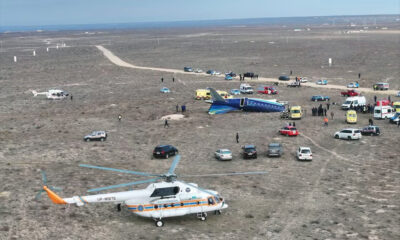Latest News
Ghani explains three pillar approach to a better Afghanistan
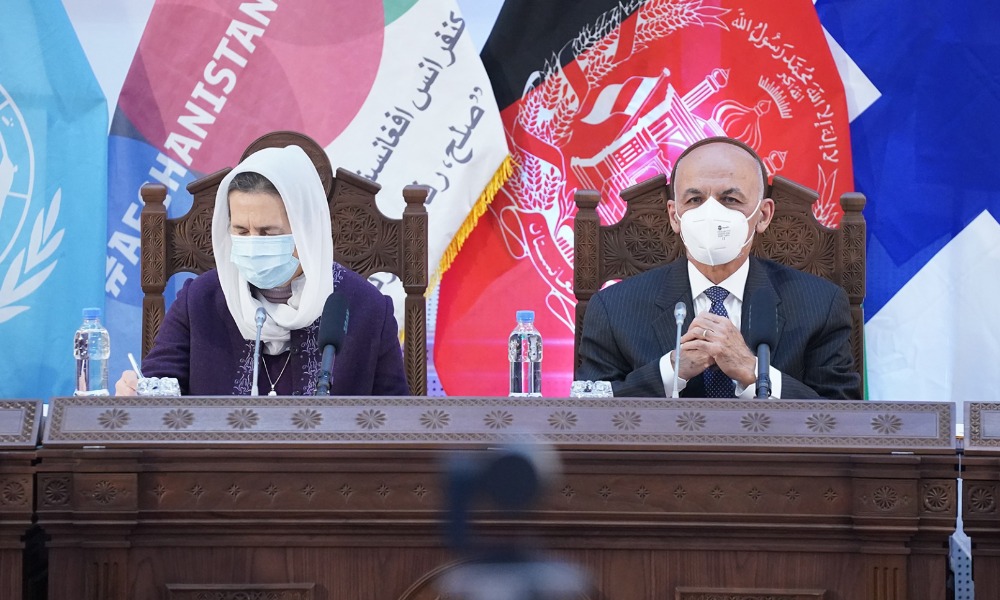
President Ashraf Ghani called for a moment of silence on Tuesday, while delivering his keynote remarks virtually at the Geneva Conference, for victims of recent attacks, including the Kabul University attack.
Geneva Conference 2020 has brought together about 70 foreign countries and stakeholders who will decide the funding assistance to Afghanistan for the years 2021 to 2024.
Addressing delegates Ghani said: “We, the Afghan people, government and the international community-share a vision of a sovereign, unified, democratic Afghanistan at peace with itself, the region and the world, capable of preserving and expanding the gains of the past two decades.”
Ghani said the country’s “three-pillar approach of peace, state and market-building presented in the second Afghan National Peace & Development Framework were validated & further enriched through a series of workshops with our partners in a spirit of genuine openness”.
Ghani said that we must build a strong regional consensus for a stable and peaceful Afghanistan.
“A sovereign, unified and democratic Afghanistan at peace...is a shared vision of all. This is not just the ultimate objective of our negotiations with the Taliban in Doha, but more importantly, it is also the ultimate goal of the work we do every day,” Ghani added.
Ghani says conditions of well-being need to be created and "rules of the game" also need to be created so that Afghanistan does not find itself "pulled backwards by vacuums of governance in which destructive forces can thrive such as corruption and unequal distribution of resources.
Ghani says "peace-making process will, inshallah, result in an agreement on paper. But peace-building is a multi-dimensional, cross-sectoral, long-term process that will allow us to actually implement the components of any peace agreement on paper."
Ghani highlighted the need to establish rule of law and security and providing services that build citizen’s trust in government in order to sustain a peace agreement.
"In this way market-building and state-building are inextricably linked to peace-building".
Ghani stated that regional connectivity is not only key to Afghanistan's market and state-building agenda but also a key to the country's peace-building agenda.
"We need to create a strong regional consensus for a stable and peaceful Afghanistan," he said.
Ghani said Afghanistan is facing daunting challenges but the country needs to adjust to deal with these issues and also acknowledged that "a lot more needs to be done now with a lot less".
Ghani also mentioned the Afghan security forces and their ability to safeguard the country.
“We have been able to retake most of the districts captured by the Taliban,” Ghani said.
He also stated that there are less than 10,000 foreign troops in the country currently. "International forces reduced from 150,000 in 2011, to below 10,000 today," he said.
Ghani asked international partners to help Afghanistan "do more with less" in the years ahead and said key sectors "are low-hanging fruits for increasing efficiency and output relatively quickly by implementing cost-cutting measures and deflating bloated bureaucracies".
Ghani said that Afghanistan is currently focusing on self-sufficiency measures in the education, urban development, energy and infrastructure sectors.
"The real test of the strength of our partnership and the virtue of our shared vision is if we are able to avoid an even greater tragedy of our shared history. We must not let history repeat her tragedies here in Afghanistan.”
UN chief Antonio Guterres delivered a pre-recorded message to the pledging conference and highlighted the achievements Afghanistan has made over the years despite the serious challenges the country has faced over the years including conflict and poverty.
Guterres said Afghans have suffered for too long and called for an immediate humanitarian ceasefire.
Guterres told delegates it's important that the peace process is inclusive and urges Afghanistan's neighbors to support the country in its quest for peace and prosperity.
Latest News
IEA summons Pakistan’s charge d’Affaires over deadly airstrikes
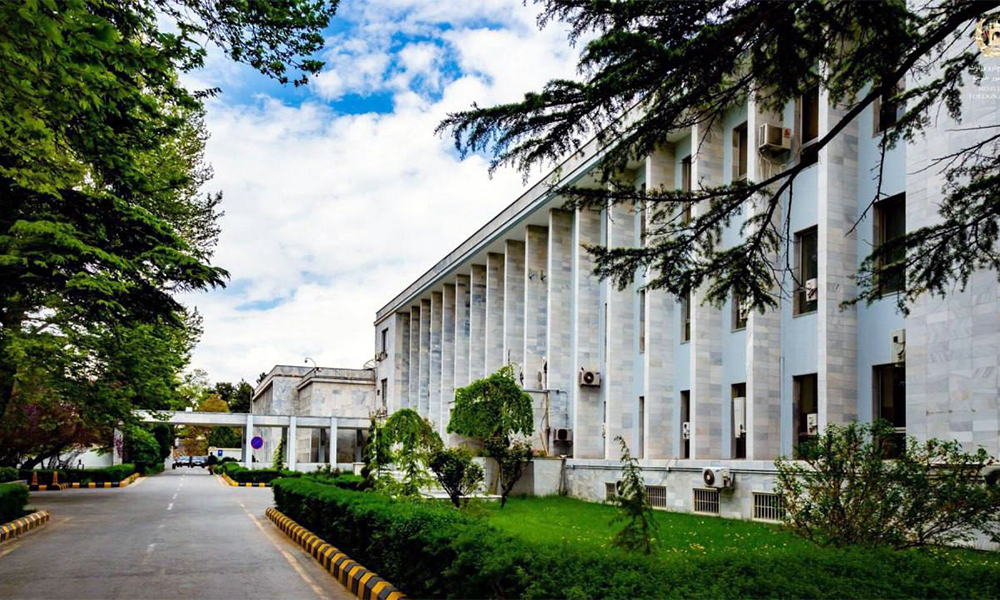
The Ministry of Foreign Affairs of the Islamic Emirate of Afghanistan has summoned the Charge d'Affaires of the Pakistani Embassy in Kabul, the ministry said in a statement.
In a strong protest, the ministry handed over a "firm protest note" to the Pakistani diplomat, condemning the recent airstrikes by Pakistani forces in the Barmal district of Paktika province.
The note stressed that the protection of Afghanistan's territorial integrity is a "red line" for the Islamic Emirate and warned that such reckless actions would have serious and far-reaching consequences.
The Pakistani airstrikes, which took place late Tuesday night, resulted in 46 deaths and left six others injured in Barmal district.
Latest News
Karzai calls Pakistan’s airstrikes in Paktika ‘blatant aggression’
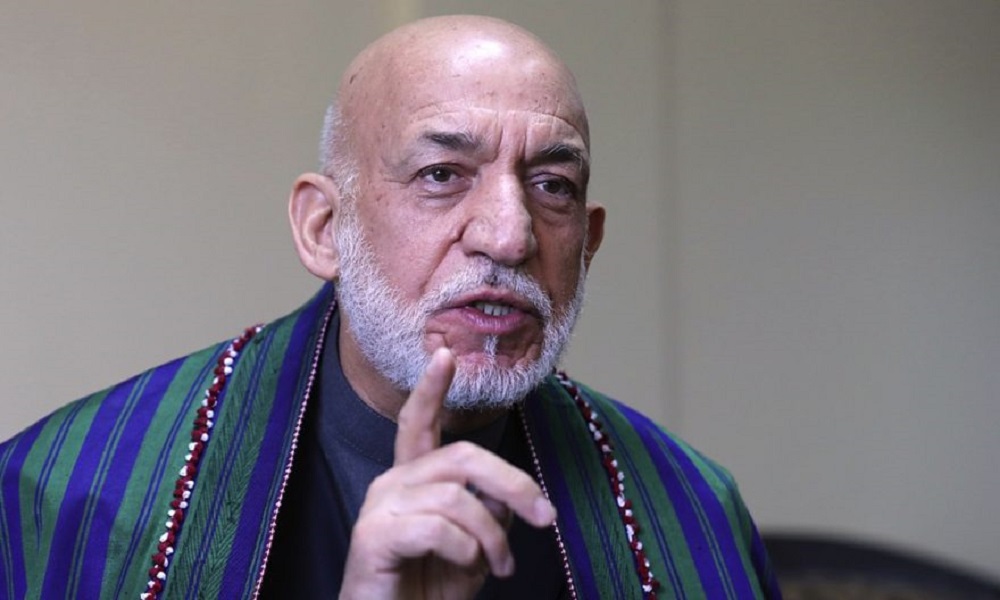
Afghanistan's former president, Hamid Karzai, has strongly condemned the recent Pakistani military airstrikes in Barmal district of Paktika province, calling it a “blatant aggression” and a violation of Afghanistan's sovereignty.
In a statement on his X (formerly Twitter) account, Karzai attributed the ongoing tensions between Afghanistan and Pakistan to Islamabad’s misguided policies, which he argued have fostered extremism in the region and consistently sought to destabilize Afghanistan.
Karzai stressed that resolving these tensions requires an immediate and thorough reassessment of Pakistan's policies.
He also called for the establishment of a "civilized relationship" grounded in mutual respect and good neighborly relations, which he believes would benefit both nations.
The Pakistani airstrikes on late Tuesday night in Barmal district resulted in 46 fatalities and six injuries.
Latest News
Deal on Islam, Islamic Emirate impossible: Deputy PM Kabir
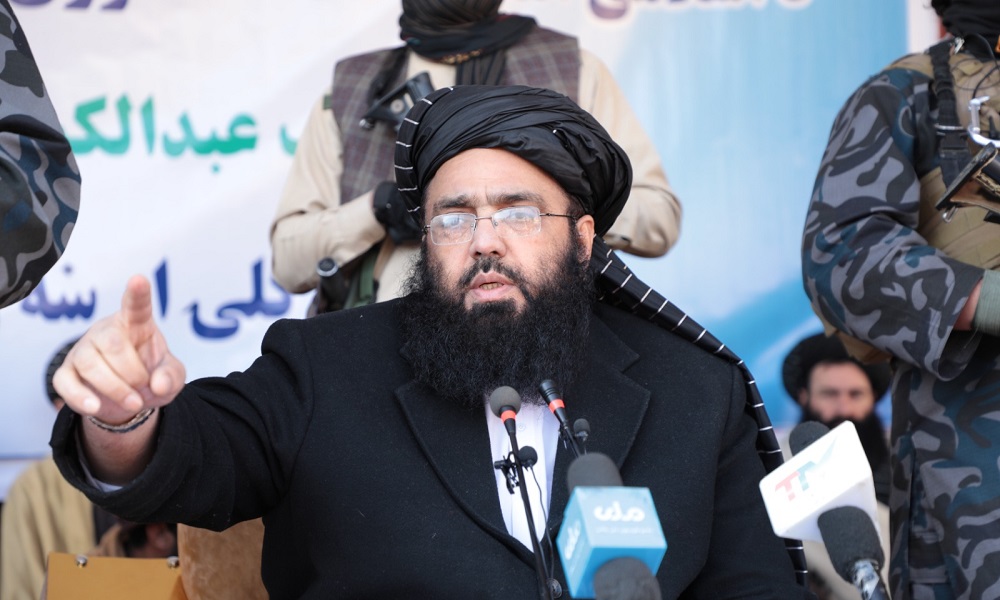
The Political Deputy of Prime Minister, Mawlawi Abdul Kabir, has firmly stated that any deal involving Islam or the Islamic Emirate is impossible. He emphasized the IEA remains steadfast in upholding the values of Jihad and will continue to adhere to its core principles.
During a visit to Baghlan province, where he attended a ceremony marking the graduation of religious madrassa students, Kabir reiterated that IEA’s relations with the international community are grounded in Islamic principles. He also reassured that the caretaker government is addressing relevant issues with a sense of responsibility and commitment.
Kabir further highlighted that efforts to improve education and development are already underway, with a gradual focus on resolving the challenges facing the Afghan people.
In a significant development, the Deputy Prime Minister also mentioned that military personnel from the previous government have been granted amnesty and are now living in full security, with no threats to their safety.
-

 Latest News5 days ago
Latest News5 days agoAfghan men must stand with women to support viable future of country: US envoy
-

 Sport4 days ago
Sport4 days agoAfghanistan clinches ODI series victory against Zimbabwe
-

 Business3 days ago
Business3 days agoShoemaking industry in Takhar province facing stagnation
-
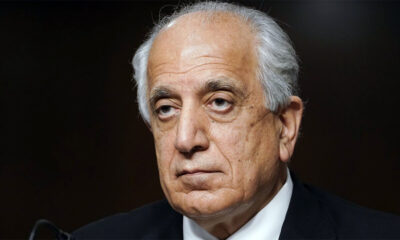
 Latest News4 days ago
Latest News4 days agoIEA can learn from Syria’s al-Sharaa: Khalilzad
-
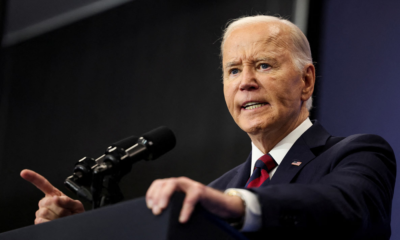
 World4 days ago
World4 days agoBiden approves $571 mln in defense support for Taiwan
-

 Latest News3 days ago
Latest News3 days agoA new polio vaccination campaign is set to launch in Afghanistan
-

 Latest News3 days ago
Latest News3 days agoEight Afghan migrants die as boat capsizes off Greek island
-
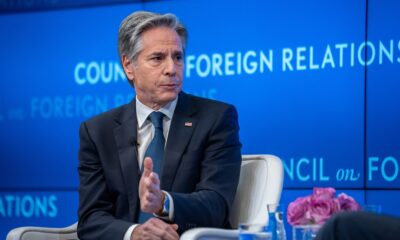
 Latest News4 days ago
Latest News4 days agoBlinken urges immediate lifting of restrictions on women’s education and work in Afghanistan


